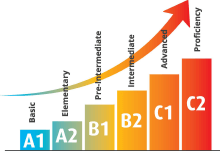How do you pronounce “Hola” in Spanish?
How To Pronounce “Hola” – The silent “H”
¡Hola! You might be wondering why I just greeted you without pronouncing the “h”. There’s a simple explanation – we don’t pronounce the “h” in Spanish. Unless it forms a “ch” in which case the pronunciation is the same as English, you’re better off just pretending like the “h” isn’t even there. Don’t believe me? Let’s have a look at some common words beginning with the letter “h”:
Hermoso (er-mo-so) – beautiful
Hombre (om-bre) – man
Hambre (am-bre) – hunger
Hermano (er-ma-no) – brother
Hermana (er-ma-na) – sister
Hamburguesa (am-bur-ge-sa) – hamburger
Huevo (u-e-vo) – egg
Helado (el-a-do) – ice cream
Hasta (a-sta) – until
Huésped (oo-es-ped) – guest
Hoy (oy) – today
Hora (o-ra) – hour/time
Noticing a pattern? Good. As we can see, the “h” is completely silent, almost as if it’s not even there. You may have also noticed that in the above examples, the “h” is the first letter of each word. While that’s typically where we find the “h”, that’s not always the case. Let’s take a at a few exceptions:
Ahora (a-o-ra) – now
Ahorrar (a-o-rrar) – save
Now, here you might be asking yourself why the double “r” and how in the world do I pronounce that? When we see the double “r”, that means we’re supposed to roll it with our tongue – but don’t worry, that’s another explanation for a different blog. For now, let’s get back to the “h”:
Ahogar (a-o-gar) – drown
Ahí (a-ee) – there
Noticing another pattern? You’ll notice this time that whenever the “h” isn’t found at the start of a word, it’s found following an “a”. However, either way the “h” is still silent. You’re probably at the point now of wondering whether the “h” sound even exists in Spanish, and the answer is…yes! The only catch is that we use either a “j” or “g” to express it. Let’s take a look at some words containing “j”:
Jabon (ha-bon) – soap
Juego (hoo-e-go) – game
Jugo (hoo-go) – juice
Joya (ho-ya) – pot
Juez (hoo-es) – judge
Usually the “j” is found at the start of a word, but not always. Some exceptions include:
Viejo (vee-e-ho) – old
Reloj (re-lo) – watch
Ajedrez (a-he-dress) – chess
Berenjena (be-ren-hen-a) – eggplant
Different placement, same pronunciation.
If you can pronounce these next two, it means you’re quickly becoming an expert:
Hijo – son
Hija – daughter
That’s right. The “h” is silent and the “j” sounds like an “h”. So…what we have here is hijo (ee-ho) and hija (ee-ha). Now let’s move on to some words beginning with “g”:
General (hen-e-ral) – general
Generoso (hen-e-ro-so) – generous
Genial (hen-ee-al) – cool
Genio (hen-ee-o) – genius
Generacion (hen-e-ra-cee-on) – generation
Here you’ll notice that not only do the words begin with “g”, but they all begin with “ge”. That’s not an accident. The rule here is that the “g” sounds like an “h” but only when it comes before an “e” at the start of a word. Otherwise, it sounds exactly like our “g” in English.
So, to recap – all “h”s are silent, all “j”s sound like “h”s, and “g”s also sound like “h”s, but only sometimes. Confused yet? Don’t worry, at Ciao Languages we got you covered. Our experts are here to ensure that you never pronounce the letter “h” again.
¡Hasta pronto!

Contact Form

Already speak a bit of Spanish? Perhaps you’d like to try out our Spanish language level test. It’s just thirty questions, and you can opt out after every five questions. The results are immediate! Have fun!




